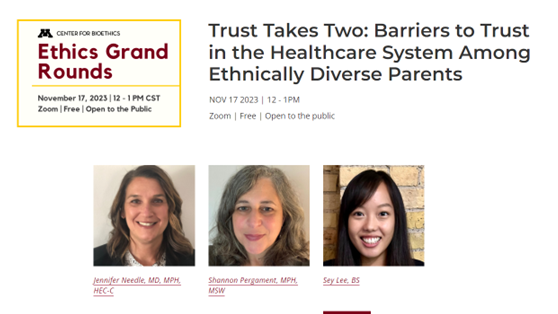More than 20% of children in the United States live with a chronic and serious illness. Parents who care for these children are challenged by children’s intense medical needs, navigating a complex health system, and significant time demands. For parents from ethnically diverse communities, such as Somali, Hmong, and Latin American, these challenges may be compounded by numerous social and structural determinants of health including language barriers, economic insecurity, and structural racism. Recent work by the presenters and research colleagues found that common contributors to miscommunication and mistrust were lack of access to quality professional interpreters and experiences of racism in the healthcare setting.
The use of a community-based participatory action approach allowed the presenters to explore the drivers of mistrust and offer community-centered recommendations to improve the outcomes and patient experience among ethnically diverse families of children with serious illness.


